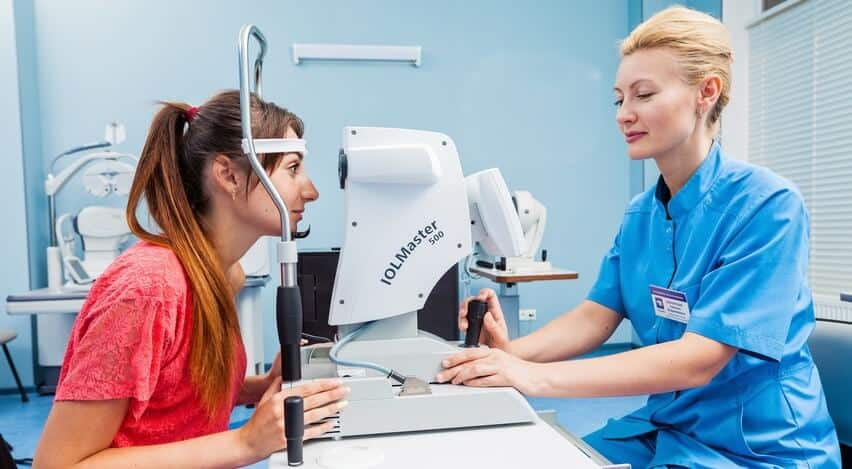Oculist or ophthalmologist? Which doctor is better to consult in case of vision problems? Is it true that an ophthalmologist is a higher-level specialist than an oculist?
In fact, both “oculist” and “ophthalmologist” are two names for the same profession. The first is derived from the Latin word oculus and the second from the ancient Greek ophtalmos, and both mean “eye”. The confusion between them arose since experts in the diagnosis and treatment of eye diseases used to be called oculists, and since 1981, according to the staff schedule of medical and preventive institutions, there are no such physicians. Instead, the specialists responsible for eye health are ophthalmologists.
When do people seek help from an ophthalmologist?
Causes to see an eye care professional urgently include the following:
- Decreased visual acuity;
- Blurred flap interfering with vision;
- Visual distortion;
- Double vision;
- “Flies” in the visual field, flickering before the eyes;
- Iridescent circles before the eyes;
- Eye pain;
- Dry eyes;
- Red eyes;
- Feeling of “sand” or a foreign body;
- Eye discharge, lacrimation;
- Rapid eye fatigue;
- Photophobia;
- Discomfort while wearing glasses;
- Headaches while wearing glasses;
- Eye injuries.
Who should pay special attention to their eye health?
Eye exams should be arranged not only in cases of visual impairment. It should be done routinely and regularly since many dangerous pathologies develop in their initial stages without any symptoms, while the visual system undergoes major changes that require the urgent intervention of a specialist.
Adult patients should attend an ophthalmology clinic at least once a year. Children – at the age of 3-12 months, 3, 5, 7 years old, and then annually.
Particular attention should be paid to your eye health:
- If you have a hereditary predisposition to any eye disease;
- Women planning a pregnancy, especially those with high myopia;
- Pregnant women;
- Those over 45-50 years of age, even if they have no eye problems;
- Children of primary school age;
- Anyone who works daily at a computer or does any work that involves eye strain;
- People undergoing a long-term hormone treatment;
- People with low or high blood pressure compared to the age norm;
- People with a history of eye trauma or inflammation;
- Those who have undergone any eye surgery;
- People diagnosed with diabetes mellitus.
What eye diseases can be detected at an ophthalmologist’s appointment?
- Myopia;
- Progressive myopia;
- Hyperopia;
- Astigmatism;
- Cataract;
- Glaucoma;
- Strabismus;
- Retinal diseases;
- Retinal detachment;
- Corneal opacities;
- Keratoconus;
- Optic nerve pathology;
- Diabetic retinopathy;
- Presbyopia, etc.
It is worth remembering that no eye disease can be diagnosed by the patient alone. With outwardly similar symptoms, eye pathologies can be radically different and require completely opposite approaches to treatment. Don’t risk your eye health! Contact a specialist!
What can I discover about my eyesight at Eximer Ophthalmology Clinic?
Modern diagnostic equipment allows our ophthalmologists to evaluate your eyes with micron precision. Eximer Ophthalmology Clinic offers imaging your visual system, capturing the smallest features and distortions using a unique device, a wavefront analyzer, or an aberrometer. Our optical coherence tomography scanner provides 2D and 3D images of the retina and optic nerve disc structures, the anterior and posterior surfaces of the cornea, and other details hidden from the physicians lacking such equipment in their arsenal.
Instead of outdated charts to check visual acuity, we employ projection devices and electronic phoropters instead of simple glasses with diopters. These devices can be used not only to choose the most accurate glasses but also to identify various pathologies of the visual system.
Eximer Ophthalmology Clinic offers all necessary equipment for unbiased analysis of any vision problems: autorefractometers, computer tomographs, topographs and tonographs, echoscans, auto-optometric systems, devices for ophthalmological examination of children from infancy.


